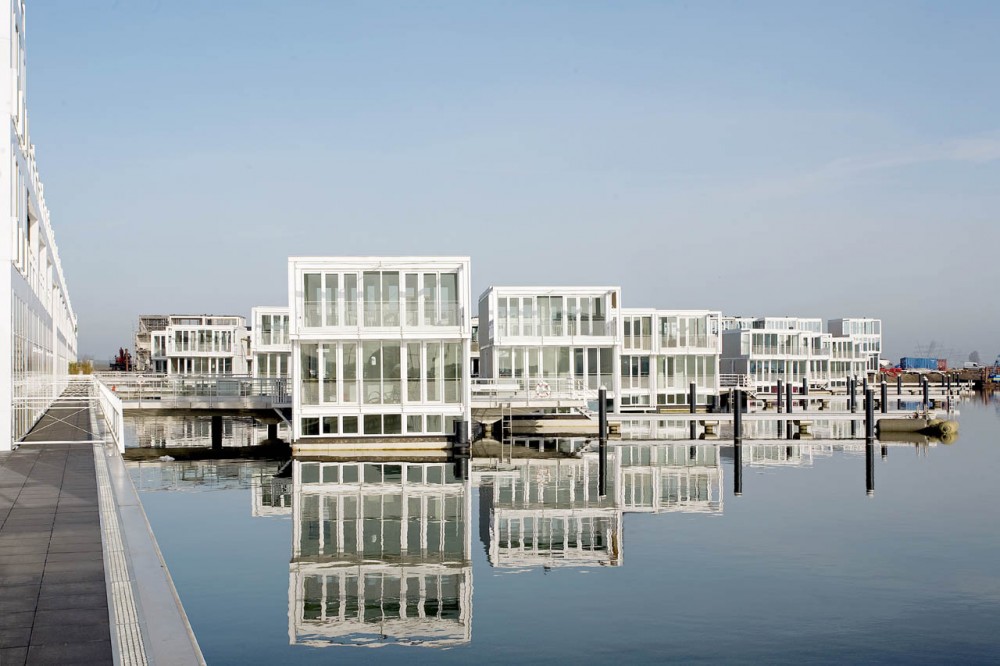Simon Richter, University of Pennsylvania
Getting Creative: Translation & Etymology as Cultural Narratives of Sustainability & Resilience
November 13, 2018
Dauer 219 (Ruth McQuown Room)
5 PM–6:30 PM
Polder-Geist: Dutch Responses to Rising Sea Levels &
Sinking Cities in the Netherlands, the United States & Asia
November 14, 2018
Dauer 215
12–1:30 PM
Archived streaming video of these events is available here.
About the Events
“Getting Creative: Translation and Etymology as Cultural Narratives of Sustainability and Resilience.”
I will present several case studies that show how the translation of two terms, sustainability and resilience, can reveal the distinctive cultural and intercultural stakes of communities as they respond to climate change. Since the publication of the Brundtland Report in 1987, all countries (and many languages) have needed to translate these and related terms. How they translate them is revealing. I will show how creative etymology has the potential to become cultural narrative. My presentation begins in the German Enlightenment with the story of Nachhaltigkeit, but moves on to consider the cases of Indonesia, Israel, and Vietnam, among others.
“Polder-Geist: Dutch Responses to Rising Sea Levels and Sinking Cities in the Netherlands, the United States and Asia.”
Coastal cities around the world are already contending with the effects of sea level rise. For many, the problems are exacerbated by subsidence. Cities are sinking and seas are rising. Hundreds of millions of people will be affected. Enter the Netherlands. Building on proud traditions of coastal defense, land reclamation, and water management, the Dutch avidly pursue what they call their “international water ambition.” In New York, Miami, Houston, Ho Chi Minh City, Jakarta, Dhaka, and many more, you will find the Dutch government and Dutch engineering and design companies promoting the Dutch approach. Dutch design slogans capture the range of their ambition: Rebuild by Design, Building with Nature, the Blue Revolution, the Floating City, Room for the River. The Dutch are intent on turning problems into opportunities. In this workshop, Professor Richter and UF faculty will explore the intercultural aspects of the Dutch international water ambition by way of several case studies.
Both events are free and open to the public. No advance registration is required.
About the Speaker
Simon Richter is Professor and Chair of Germanic Languages and Literatures and member of the Graduate Groups in Comparative Literature and Religious Studies, fellow of the Institute of Urban Research, and affiliated with the Programs in Cinema Studies, Environmental Humanities, Women’s Studies, and the Penn Water Center. His published books include Women, Pleasure, Film: What Lolas Want, Missing the Breast: Gender, Fantasy and the Body in the German Enlightenment and Laocoon’s Body and the Aesthetics of Pain. Unwrapping Goethe’s Weimar: Essays in Cultural Studies and Local Knowledge (co-edited with Susanne Kord and Burkhard Henke) appeared in late 1999 in conjunction with the 250th anniversary of Goethe’s birth. Richter also edited volume seven of the Camden House History of German Literature, The Literature of Weimar Classicism (2005). Camden House published Goethe’s Ghosts: Reading and the Persistence of Literature, a festschrift for the esteemed Goethe scholar Jane Brown, co-edited with Richard Block, also in 2013. Richter has published articles in the areas of history of medicine, gay and lesbian studies, gender studies, film studies, aesthetics, opera and literature, German foodways, cinema studies, cultural studies, environmental humanities, Nazi-era and postwar literature, and on authors such as Sophie von La Roche, Theresa Huber, Caroline von Wolzogen, Sophie Mereau, Winckelmann, Lessing, Heinse, Herder, Goethe, Moritz, Schiller, Wilhelm von Humboldt, Hegel, Eichendorff, Habermas, Max Frisch, Fritz von Unruh, Gerard Reve, Boudewijn Büch and Rammstein.
Professor Richter’s lecture and the “Polder-Geist” workshop are sponsored by the Sustainable Online Network for Global Cultural Studies and Imagining Climate Change.
